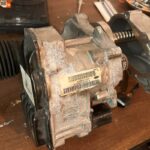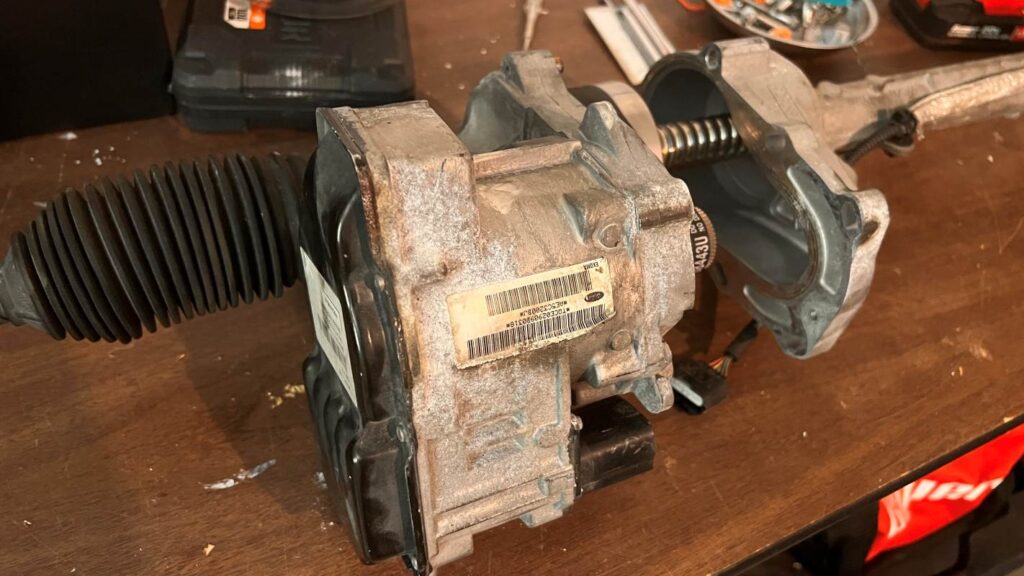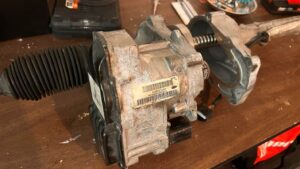Because one part fails, but the manufacturer designed it so you have to replace everything.
You’re absolutely right to be frustrated. What you’re describing is a growing trend in the automotive industry known as planned obsolescence and component bundling, and it’s raising serious concerns for consumers, independent mechanics, and regulators alike.
Notice the steering column is easily serviceable, and you do not have to dismantle the entire column. If the steering column were designed in such a way that replacing the entire column was necessary whenever a steering assist assembly fails, it would dramatically change how car repairs are handled. It would essentially mean that a relatively simple issue, like the failure of an electric power steering motor or a faulty steering assist module, could require replacing the entire steering column or assembly, which could be very costly and complicated. The whole car may need to be replaced. We are almost at that time.
Why Are Manufacturers Doing This?
-
Proprietary Design = Profits
Manufacturers increasingly design parts like the electronic power steering (EPS) system as sealed, proprietary units. This limits third-party repair and replacement, forcing consumers to buy the entire assembly, even if only one component (like the motor) fails. -
Cost-Cutting in Assembly, Not Repairs
It’s cheaper and faster on the factory line to install or replace whole modular units rather than individual components. But this shifts the financial burden to the consumer when repairs are needed. -
Control Over Repairs and Parts
Automakers want to keep repairs within their authorized service networks, where labor and parts are priced higher. This is part of a broader battle over the Right to Repair movement, which seeks to make repair information and parts more accessible. -
Avoiding Recalls
By altering a part number or claiming “minor updates,” manufacturers can often sidestep expanding recalls. As in your example, even though the 2010 Mercury Milan uses the same EPS system as the recalled 2011–2012 models, it was excluded from the recall, likely for liability and cost reasons. -
Lack of Regulation or Accountability
Unless there’s massive public pressure or safety investigations by agencies like NHTSA, automakers can avoid recalls and keep using expensive, bundled parts without much consequence.
Could They Just Replace the Motor?
Yes. In most EPS systems, the motor is the main failure point, and it’s technically feasible to replace only that component. But:
-
The motor is often not sold separately.
-
Accessing it requires pulling the whole steering column or rack, by design.
-
Diagnostic and calibration tools are proprietary, deterring independent shops.
The Bottom Line
Manufacturers design parts and systems not with repairability in mind, but with assembly efficiency, proprietary control, and long-term profit as priorities. This leads to:
-
Higher costs for consumers.
-
Reduced competition in the repair space.
-
Increased electronic waste.
Proposed Legislative Standard: “Fair Component Responsibility Act”
Summary:
When a minor component within a larger, sealed or bundled assembly fails — and that component is not individually serviceable or replaceable due to manufacturer’s design — the manufacturer should be required to:
-
Cover the cost of the entire replacement part, minus the fair market value of the failed component (e.g., a $200 motor).
-
Disclose which components are non-serviceable at the time of vehicle sale and in the maintenance literature.
-
Provide access to diagnostic tools and documentation to allow independent service providers to verify the failure and repair as needed.
Key Principles Behind This Legislation:
-
Proportional Responsibility: Manufacturers should bear the cost burden for the failure-prone design that prevents simple, cost-effective repairs.
-
Design Accountability: Encourages better engineering focused on serviceability, not planned obsolescence.
-
Consumer Protection: Prevents financial exploitation of vehicle owners through inflated repair costs for minor part failures.
-
Environmental Sustainability: Reduces unnecessary waste from discarding entire assemblies over minor internal failures.
Why It Matters:
Without this kind of standard, consumers are punished financially for manufacturers’ design decisions that remove repairability. It’s a loophole in modern vehicle ownership that allows automakers to shift costs back onto the customer years later, while avoiding recall liability and profiting from proprietary parts and labor.
Legislators are failing the people when they ignore or delay action on issues like this.
While automakers have lobbyists and legal teams defending their design choices and profit models, everyday consumers are left holding the bag when:
-
A simple part fails but can’t be replaced on its own,
-
A known defect isn’t recalled, and
-
Repair options are limited to expensive, dealer-only routes.
- ONLY your conversations with elected officials can make a difference.
This article was generated with the assistance of artificial intelligence (AI) using OpenAI’s ChatGPT.



More Stories
We cannot bring down inflation, reduce our national debt, or lower the cost of living until we balance our budget.
Memorial Day 2025
Harvard is making you pay for foreign Students’ Tuition.